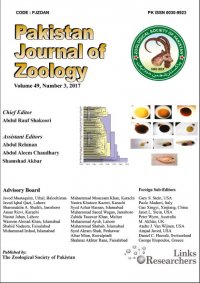An Efficient Protocol for Isolation, Purification, and Characterization of Human Erythroid Progenitor Cells from Peripheral Blood Samples of Healthy Adult Volunteers
An Efficient Protocol for Isolation, Purification, and Characterization of Human Erythroid Progenitor Cells from Peripheral Blood Samples of Healthy Adult Volunteers
Tanveer Jilani1*, Irfan Khan2, Asmat Salim2, Fareena Bilwani1, Bushra Moiz3 and Mohammad Perwaiz Iqbal1,4
ABSTRACT
Erythroid progenitor cells (EPCs) can differentiate into erythroid precursors and eventually in to mature red blood cells. Cluster of differentiation (CD)34 is a known surface marker for identification of primitive human erythroid progenitor cells including EPCs. CD34+ cells can be isolated from peripheral blood samples using magnetic-assisted cell sorting (MACS) or by flowcytometry-mediated cell sorting. There are no reported studies from South Asia in which CD34+-derived EPCs have been isolated and purified from the peripheral blood samples obtained from healthy adult humans. The aim of the present study was to isolate CD34+ cells, differentiate CD34+ cells in to EPCs, purify and characterize CD34+-derived EPCs from peripheral blood samples from healthy adult human subjects. Blood samples were obtained from apparently healthy Pakistani adult volunteer human subjects. Human peripheral blood mononuclear cells (PBMNCs) were separated from the blood sample by density gradient centrifugation. CD34+ cells were isolated from PBMNCs by MACS using CD34+ selection kit. CD34+ cells were differentiated in to EPCs by using erythroid expansion supplement. Purity of the CD34+-derived EPCs was assessed through immune fluorescence microscopy using monoclonal antibodies against erythroid specific surface antigens CD34, CD235a and CD71. The purity of CD34+-derived EPCs was determined to be 95%-98%. Cord blood samples contain immature cells, which can result in contamination of PBMNCs layer. Thus, obtaining EPCs from CD34+ peripheral blood cells of healthy adult humans is superior as the risk of contamination is minimal. The method of isolation and purification of CD34+-derived EPCs used in this study is simpler, user friendly and is more efficient as compared to other techniques. Human EPCs differentiated by this protocol can then be used to study normal and abnormal erythropoiesis.
To share on other social networks, click on any share button. What are these?









